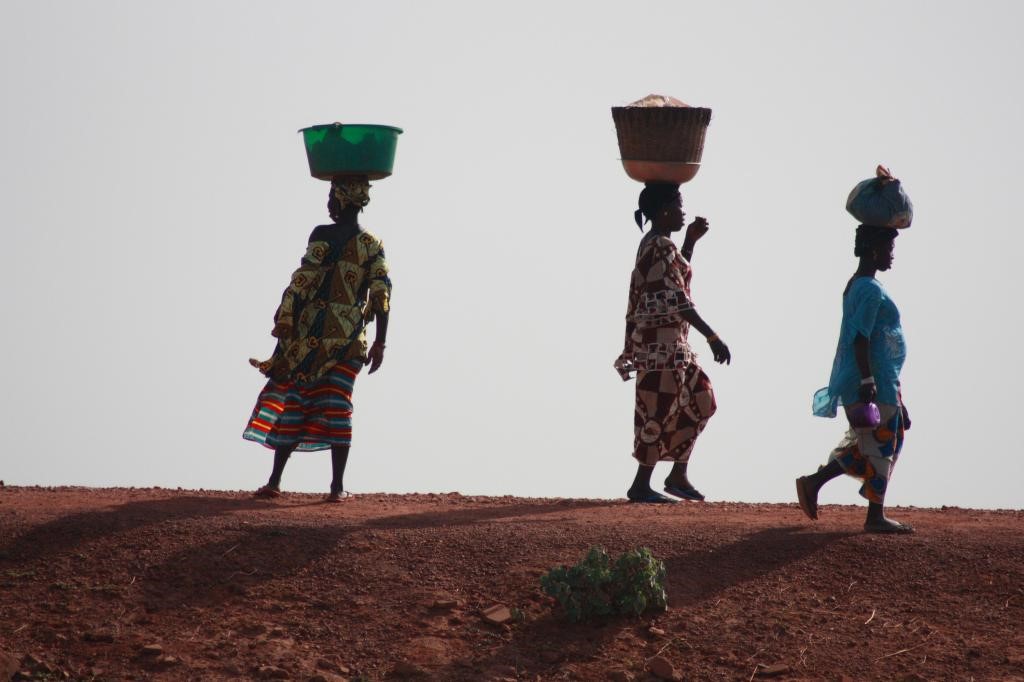Description

Disclaimer: Copyright infringement not intended.
Context: A report by a humanitarian organisation has highlighted the dangerous link between climate change and conflict in countries like Cameroon, Chad, Niger and Nigeria in the Lake Chad Basin.
Details:
- Shrinking natural resources due to adverse weather are heightening tensions across communities and displacing people, said the report by Refugees International.
- Around 3 million people have been displaced and an additional 11 million are in need of humanitarian assistance.
- One of Africa’s largest freshwater bodies, the Lake Chad, has shrunk by 90 per cent.
- Over 10 million people across the region are in need of emergency assistance. The United Nations has term the Lake Chad crisis as “one of the worst in the world”.
About:
- Lake Chad in the Sahel straddles Nigeria, Niger, Chad and Cameroon and is home to 17.4 million people. It is blessed with rich aquatic and terrestrial biodiversity.
- The Lake Chad basin comprises biosphere reserves, World Heritage and Ramsar sites as well as wetlands of international conservation importance.
- For years, the lake has been supporting drinking water, irrigation, fishing, livestock and economic activity for over 30 million people in the region.
- Located in Northern Central Africa, Lake Chad borders four countries — Chad, Nigeria, Niger and Cameroon. But the Lake Chad “Basin” that covers almost 8% of the continent, spreads over seven countries: Algeria, Cameroon, Central African Republic, Chad, Libya, Niger and Nigeria.
.jpeg)
Tackling the challenges:
- Governments of the affected countries are now battling on several fronts around Lake Chad.
- First, they are conducting a military offensive against the terrorists. A joint multinational task force made up of troops from Nigeria, Niger, Cameroon, Chad, and Benin continues to launch military strikes against the terrorists.
- Second, the governments want to end the violent conflict between herders and farmers over water and pasture.
- Third, they are trying to find a lasting solution to the drying of the lake, which is exacerbating poverty in the region. An ambitious plan to restore the lake to its former glory involves a multibillion-dollar project that will channel water from the Ubangi River in the Democratic Republic of the Congo, which is 2,400 km from the lake. A feasibility was already underway in 2018.
- In the last two years, the UN has co-hosted two back-to-back international donor conferences, the first in Oslo where donors pledged $672 million in emergency assistance, and the second in Berlin, where donors announced $2.17 billion, including $467 million in concessional loans, to support activities in Cameroon, Chad, Niger and Nigeria.
Way Forward:
- There is a need to reach out to the rebel groups and initiate participatory way of planning and executing peacebuilding programme.
- Prime focus should be given to empower and integrate the internally displaced persons and refugees into mainstream society.
- Providing sustainable solutions to deep-rooted challenges require sustained engagement. This is possible through promoting good governance and international development cooperation.
- On the contrary, conventional peacebuilding effort is of course never enough unless we incorporate and strategically address the interconnected issues of conflict and climate change. It is important to address the cause and effect relationship between the environment and human security.
- Radical military operation and humanitarian relief will never restore peace and stability.
- Instead, food security analysis and early warning systems should be reinforced to help communities effectively prepare for threats and future shocks.
- To make this happen, there is a need to implement systematic data collection, collation, storage and dissemination.
Long-term solutions:
- There should be robust and integrated management of water resources at the national and regional levels in the affected countries
- Sustainable management of natural resources will strengthen regional stabilisation, reduce people’s vulnerability and increase resilience
- To translate this on ground, the UN Security Council and other peacebuilding agencies should integrate the linkages of environmental, social and political issues in their peacebuilding efforts
- Cultivation of climate-smart crops such as millets, tubers and cereals, could effectively ameliorate the socio-economic situation

https://www.downtoearth.org.in/news/africa/climate-change-fuelling-conflict-in-lake-chad-basin-report-87312













